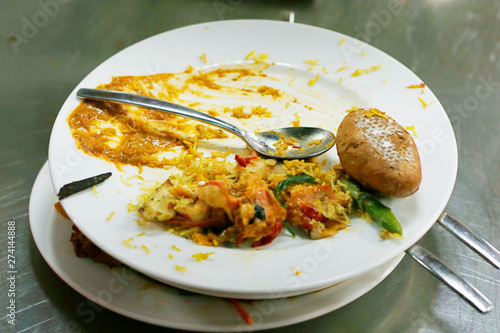
A significant part of the municipal waste consists of food waste, either from meal preparation, food storage, bad stock management or expired products. Another part of food waste consists of processed/cooked food that is not eaten, which does not actually get to be served or goes back to the kitchen as scraps, when menus include excessive amounts of food. This means not only that food in good condition is thrown away every day, but also that every day people are acting irresponsibly, which has a negative impact on the environment. To tackle this problem Porto and Ibiza developed projects dedicated to minimizing the amount of food waste produced in restaurants, all of them based on raising awareness and encouraging restaurants and their clients to change their eating habits.
The project “Dose Certa”, developed in Porto, promotes an educational action within the restaurants that voluntarily agreed to participate, aiming to resize the portions served in every meal and, consequently, reduce the amount of leftovers. Focusing on a different part of the process, the project “Embrulha” offers the restaurants a biodegradable leftovers pack, with an appealing appearance, to encourage clients to bring their leftovers home.
“Dose Certa” is implemented in 18 restaurants in Porto. The estimates show a reduction potential of around 30% of the food waste production. In the last quarter of 2017 “Embrulha” prevented 3,24 tonnes of food waste and 680 kg of CO2-equivalent emissions. Almost 40 restaurants participated in the campaign “Aprofita’Mmm” reaching more than 1000 customers each year. If each customer took home around 100g of leftover food, this campaign prevented 1000 kg of food waste each year.